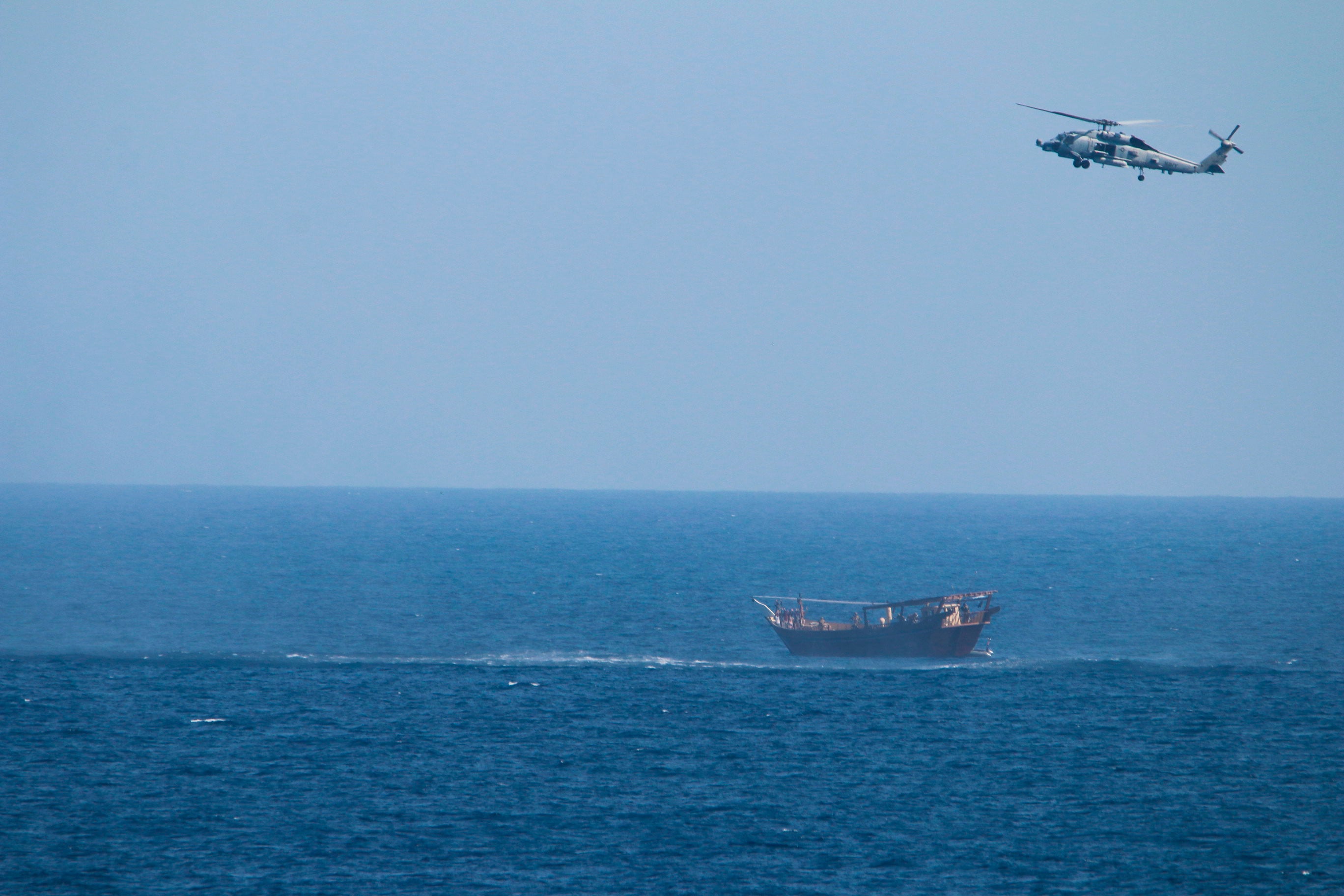UK warship seizes advanced Iranian missiles bound for Yemen
The British Royal Navy has seized a sophisticated shipment of Iranian missiles in the Gulf of Oman, pointing to the interdiction as proof of Tehran’s support for Yemen’s Houthi rebels in the embattled country

Your support helps us to tell the story
From reproductive rights to climate change to Big Tech, The Independent is on the ground when the story is developing. Whether it's investigating the financials of Elon Musk's pro-Trump PAC or producing our latest documentary, 'The A Word', which shines a light on the American women fighting for reproductive rights, we know how important it is to parse out the facts from the messaging.
At such a critical moment in US history, we need reporters on the ground. Your donation allows us to keep sending journalists to speak to both sides of the story.
The Independent is trusted by Americans across the entire political spectrum. And unlike many other quality news outlets, we choose not to lock Americans out of our reporting and analysis with paywalls. We believe quality journalism should be available to everyone, paid for by those who can afford it.
Your support makes all the difference.A British Royal Navy vessel seized a sophisticated shipment of Iranian missiles in the Gulf of Oman earlier this year, officials said Thursday, pointing to the interdiction as proof of Tehran’s support for Yemen’s Houthi rebels in the embattled country.
The British government statement was striking in that it provided some of the strongest findings to date that Tehran is arming the Houthis against the Saudi-led military coalition with advanced weapons smuggled through the Persian Gulf.
The U.K. Embassy in the United Arab Emirates described the seizure of surface-to-air-missiles and engines for land attack cruise missiles as “the first time a British naval warship has interdicted a vessel carrying such sophisticated weapons from Iran.”
“The U.K. will continue to work in support of an enduring peace in Yemen and is committed to international maritime security so that commercial shipping can transit safely without threat of disruption,” said James Heappey, Minister for the Armed Forces.
Iran’s mission to the United Nations did not respond to a request for comment.
The announcement signals an escalation as Western officials have in the past shied away from public statements that definitively blame Iran for arming Yemen’s Houthis with military contraband. The route of the smuggled shipments through the Arabian Sea or Gulf of Aden, however, has strongly suggested their destination.
Despite a United Nations Security Council arms embargo on Yemen, Iran has long been suspected of transferring rifles, rocket-propelled grenades, missiles and other weaponry to the Houthis since the disastrous war began in 2015. Iran denies arming the Houthis, independent experts, Western nations and U.N. experts have traced components back to Iran.
Citing a forensic analysis last month, the British navy linked the batch of rocket engines seized earlier this year to an Iranian-made cruise missile with a 1,000-kilometer range that it said the rebels have used against Saudi Arabia.
The Houthis also used the cruise missile to attack an oil facility in Abu Dhabi in January of this year, the British navy said, an assault that killed three people and threatened the key U.S. ally’s reputation as a haven of stability. The U.S. military launched interceptor missiles during the attack, signaling a widening of Yemen's war.
The HMS Montrose’s helicopter had been scanning for illicit goods in the Gulf of Oman on January 28 and February 25 when it spotted small vessels speeding away from the Iranian coast with “suspicious cargo on deck.” A team of Royal Marines then halted and searched the boats, confiscating the weapons in international waters south of Iran.
A U.S. Navy guided-missile destroyer supported the British warship's February operation. Fifth Fleet Vice Adm. Brad Cooper said the seizure reflected the Navy’s “strong commitment to regional security and stability.”
The Houthis seized Yemen’s capital, Sanaa, in September 2014 and forced the internationally recognized government into exile. A Saudi-led coalition armed with U.S. weaponry and intelligence joined the war on the side of Yemen’s exiled government in March 2015.
Years of fighting have ground into a bloody stalemate and pushed the Arab world’s poorest nation to the brink of famine. A tenuous truce that began around the holy Muslim month of Ramadan appears to be holding, although both sides have accused each other of violations.